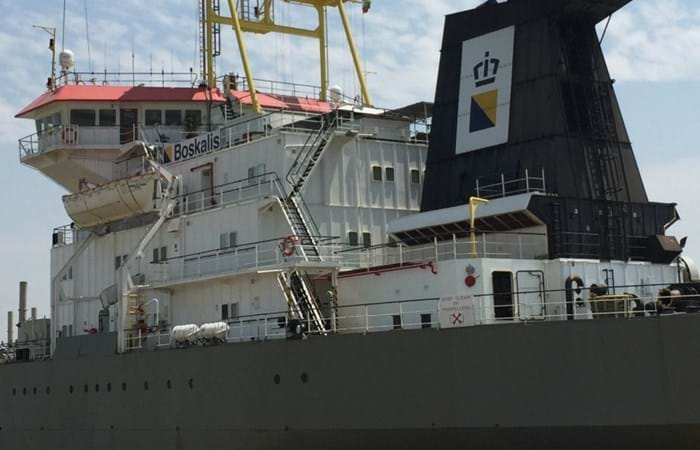Located close to the city centre on the Yangon River, Yangon Port has been the main port to Myanmar since colonial times. Currently, the port has capacity for vessels of up to 15,000 –20,000 DWT and works are scheduled to increase the port’s capacity for vessels up to 35,000 DWT.
Scope of work
Boskalis mobilized from Indonesia the TSHD Cornelis Zanen with a hopper capacity of 8,600 m3. The channel was deepened to a minimum depth of 6 m CD over the full width of 100 m. In addition, the approach channel was widened to allow vessels more manoeuvring capabilities when entering the inner port.
Challenges
Tight timeline Dredging operations started immediately on the arrival of Cornelis Zanen, leaving limited time for project preparation. Working in close cooperation with the Myanmar Port Authorities and working with local subcontractors and suppliers, the Boskalis project team finalized the bathymetric riverbed survey measurement campaign within several days of signing the contract. River conditions Navigation from the pilot station 32 km seaward of Elephant Point is generally on the flood tide, and to ensure sufficient depth, crossing both the inner bar and outer bar is timed for high tide. The average tidal range is about 6 m at spring tide and 2.5 m at neap tide. While waves in the Yangon River do not hinder maritime operations, the current velocity of 4 to 6 knots at spring tide has to be controlled. As the channel width of 100 m at Monkey Point is relatively limited, navigation and particularly the dredging operations demanded close attention. Safety and cooperation with other parties The Boskalis No Incident and No Accident (NINA) safety program was implemented and within the short time period available, all parties were informed and were fully compliant with the high safety standard throughout the project.
Conclusion
Boskalis completed the dredging works in compliance with the contract requirements and in partnership with the Myanmar Port Authority. The works were completed within the budget and the required time frame without accident, incident or spill.
